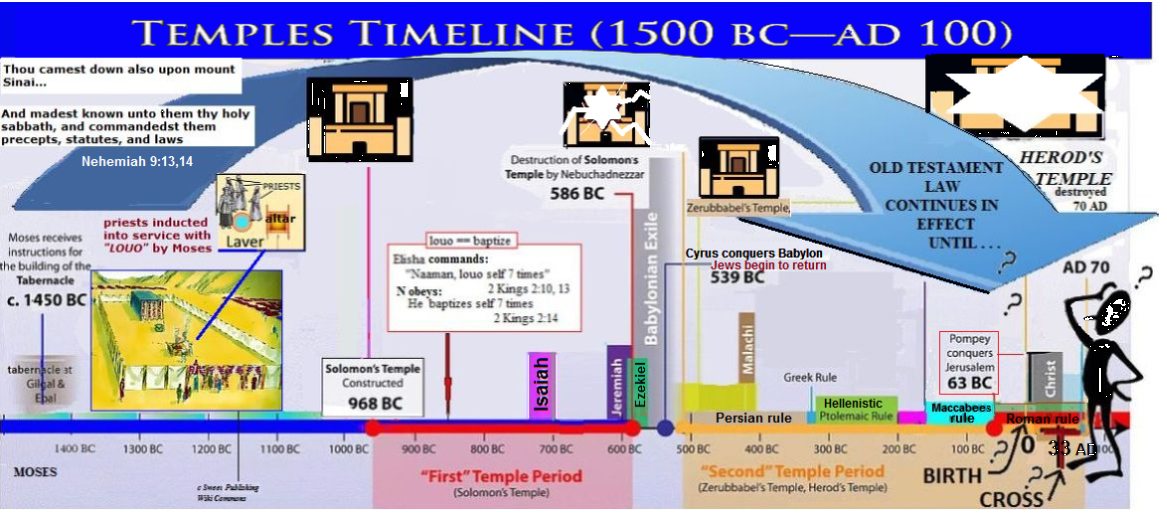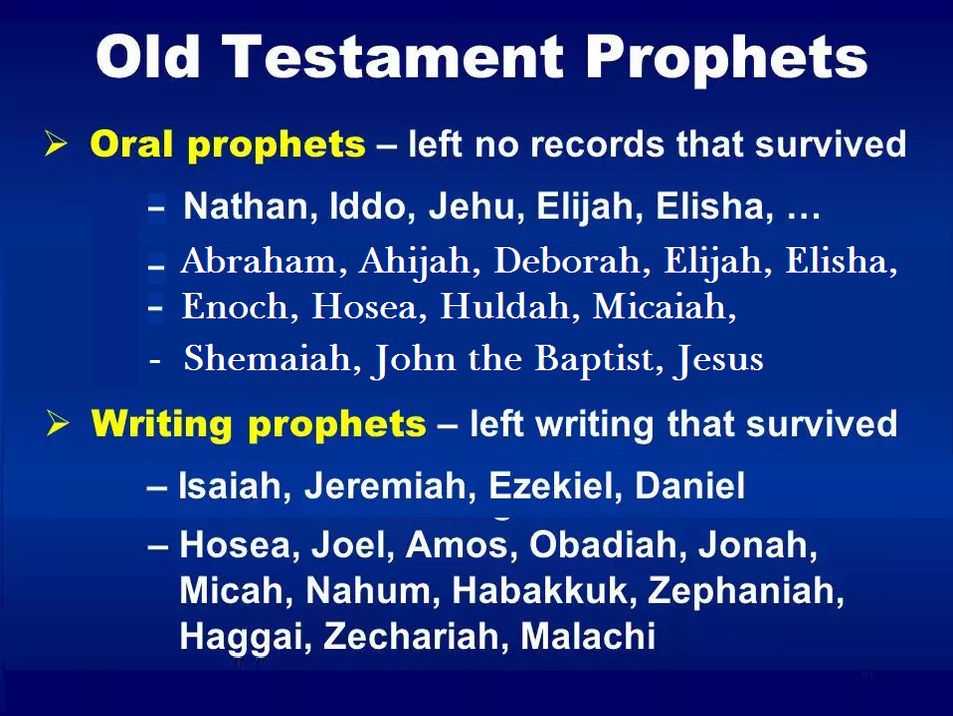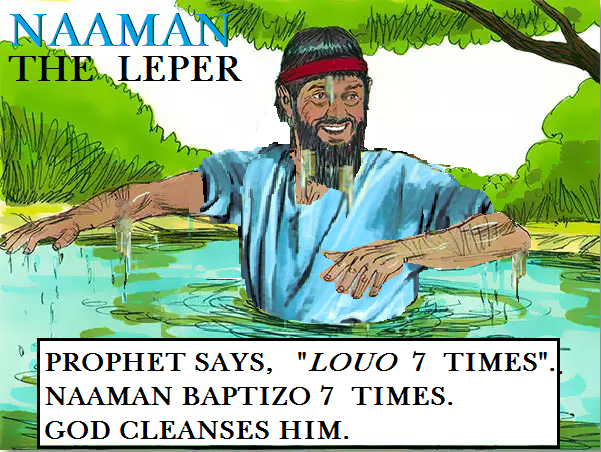 When did the OT Law of
Moses (Luke 2:22, 23) begin? When did it end?
When did the OT Law of
Moses (Luke 2:22, 23) begin? When did it end?LEAVING THE DOCTRINE OF BAPTISMS #6
JOHN’S BAPTISM AND THE OT LAW
BASIC TEXT: “Therefore leaving the principles of the doctrine of Christ, – Of the doctrine of baptisms” (Hebrews 6:1, 2, KJV)
 When did the OT Law of
Moses (Luke 2:22, 23) begin? When did it end?
When did the OT Law of
Moses (Luke 2:22, 23) begin? When did it end?
Which Law did the “elders’ tradition” violate? Did John the Baptist add to the Old Testament Law or did he replace the Old Testament Law?
YOUR VIEW OF THE OLD TESTAMENT LAW?
In my youth a Sabbatarian correspondence course Voice of Prophecy taught me that Jesus meant for us to observe the seventh day as a sabbath because He attended the synagogues on Saturdays (Mark 1:21; 2:28). Some Baptist friends taught me that Jesus taught salvation without baptism for the thief on the cross (Luke 23:43). Many today are teaching then that the New Testament came into effect with the birth of Jesus. After all, it is plain that the Bible is physically divided there. If someone says, “Let’s turn to the New Testament” where do you automatically turn to? Jesus, according to this doctrine, would have accused the Pharisees of just being too strict with a law that was no longer in effect. Deductively with them, the teachings of Jesus are binding from Matthew 1 on.
This is without doubt a major problem for unity in Christendom if we do not agree with when the New Testament authority began; i.e., whether at the end of Malachi or at the beginning of the book of Acts (Galatians 5:4; 6:2).
Which is it? Did Jesus live, teach, and die under the Old or the New Testament Law?
According to Hebrews 9:15-18 Jesus had to die and shed His blood before His new testament could come into effect and therefore replace the old one:
“And for this cause he is the mediator of the new testament, that by means of death... For where a testament is, there must also of necessity be the death of the testator. For a testament is of force after men are dead: otherwise it is of no strength at all while the testator liveth. Whereupon neither the first testament was dedicated without blood.” A testament requires the death of the testator – in this case, Jesus. The testaments from Heaven require the shedding of blood.
The uniqueness of the Jews established by the Old Testament Law were removed at the cross. Ephesians 2:15,16: “Having abolished in his flesh the enmity, even the law of commandments contained in ordinances; for to make in himself of twain one new man, so making peace; And that he might reconcile both unto God in one body by the cross, having slain the enmity thereby.” And, according to Colossians 2:14, “Blotting out the handwriting of ordinances that was against us, which was contrary to us, and took it out of the way, nailing it to his cross.”
The Scriptures are clear that the division of the New from the Old is not at the beginning of Matthew but is at the beginning of Acts. It is after the cross! Jesus did not accuse anyone of not following something that was not in existence. The Pharisees were disobeying the Old Testament [OT] Law of the Lord and not the New. The Jews were baptized by John’s baptism for their sinning against the OT and not Jesus, the Christ.
RIGHTLY DIVIDING THE BIBLE
It is important to rightly divide the Bible. “Study to shew thyself approved unto God, a workman that needeth not to be ashamed, rightly dividing the word of truth.” (2 Timothy 2:15; the ABP+ translates the last as “a worker unashamed, cutting straight the word of truth”).
Mark wrote (7:3) that the Pharisees and scribes accused Jesus of not observing their “elders” traditions. Jesus told the Pharisees that their added rules rejected God’s commandment. God through Moses commanded in Deuteronomy 4:2, “Ye shall not add unto the word which I command you, neither shall ye diminish ought from it, that ye may keep the commandments of the LORD your God which I command you.” Indeed, Jesus had answered during His own temptation in the wilderness, “Man shall not live by bread alone, but by every word that proceedeth out of the mouth of God” (Matthew 4:4b). And that’s period. No additions. Jesus answered that the Jews had rejected the commandments of God (Mark 7:9) with these added teachings.i Why then didn’t these Pharisees seek the advantage of Jesus by asking if that did not apply also to the baptism of John?
The answer is found in Matthew 21:25, 26: Jesus asked the chief priests and elders, “The baptism of John, whence was it? from heaven, or of men? And they reasoned with themselves, saying, If we shall say, From heaven; he will say unto us, Why did ye not then believe him? But if we shall say, Of men; we fear the people; for all hold John as a prophet.” John was indeed a prophet from God. The people understood from the Law that a prophet could with authority add to God’s commandments.

Moses Was God’s Initial Prophet Under The OT But He Was To Be Followed By Other Prophets of God. God’s prophets were His spokespersons (Exodus 4:16; 7:1). God promised prophets to follow Moses (Numbers 12:6). And there were many prophets. “And what shall I more say? for the time would fail me to tell ...of the prophets” (Hebrews 11:32).
David was among those prophets. He was inspired to write the Psalms. He gave divine instructions for the worship in the Temple that was to be built by Solomon. He added instrumental music to Temple service, but since he was a prophet of God, it means that God Himself added the instrumental music (2 Chronicles 29:25). Generally, the Jews respected the authorized use of the instruments only in the Temple for worship. It was never practiced to my knowledge in the synagogues. But they did add the washings and other regulations contrary to God’s revelation.
 Greek wash louo G3068
a synonym for Greek baptizo G907
Greek wash louo G3068
a synonym for Greek baptizo G907
John was God’s prophet (Matthew 11:9) just like Elisha in the OT. Elisha commanded Naaman to “wash” (bathe, λούωG3068 his whole body, 2 Kings 5:13) seven times and Naaman obeyed by immersing (βαπτίζω G907 , middle voice; KJV says correctly, “dipped”) himself seven times (2 Kings 5:14). God approved by cleansing him. Just as God commanded Naaman through Elisha, God commanded the Jews through the prophet John to be baptized unto repentance (Matthew 3:11; Acts 19:4).
Jesus preached baptism just as John (John 3:22). Just like John, Jesus never told anyone to disobey the OT or the Temple Law. He taught that He came to fulfil it (“to fill it up”, Matthew 5:17). This is very important. An example: Jesus healed the leper but He commanded him to obey the OT Temple Law, “Go thy way, shew thyself to the priest, and offer the gift that Moses commanded, for a testimony unto them” (Matthew 8:4b). Jesus never diminished or changed the OT Law during His earthly ministry (Matthew 5:17-20).
The “elders’ tradition” then violated the purification laws of the Law of Moses. Jesus and John were born under that Law. John’s baptism was an addition to the Old Testament Law.
It is important to note that neither John nor Jesus spoke against Moses (Law of) for their ministries were under the Law of Moses. If Jesus had taught against the Old Testament He would have been a sinner and would have been condemned to death by the Law of Moses. Deuteronomy 18:20: “But the prophet [which would include John and Jesus], which shall presume to speak a word in my [i.e., God’s] name, which I [God] have not commanded him to speak, or that shall speak in the name of other gods, even that prophet shall die.”
Again, “And that prophet, or that dreamer of dreams, shall be put to death; because he hath spoken to turn you away from the LORD your God, which brought you out of the land of Egypt, and redeemed you out of the house of bondage, to thrust thee out of the way which the LORD thy God commanded thee to walk in. So shalt thou put the evil away from the midst of thee” (Deuteronomy 13:5).
To this strict observance, Jesus agreed, “Think not that I am come to destroy the law, or the prophets: I am not come to destroy, but to fulfil. For verily I say unto you, Till heaven and earth pass, one jot or one tittle shall in no wise pass from the law, till all be fulfilled. Whosoever therefore shall break one of these least commandments, and shall teach men so, he shall be called the least in the kingdom of heaven: but whosoever shall do and teach them, the same shall be called great in the kingdom of heaven ” (Matthew 5:17-19).
i “The purification rites in Jewish laws and tradition, called "Tvilah", have some similarity to baptism, and the two have been linked.” https://en.wikipedia.org/wiki/History_of_baptism.

|